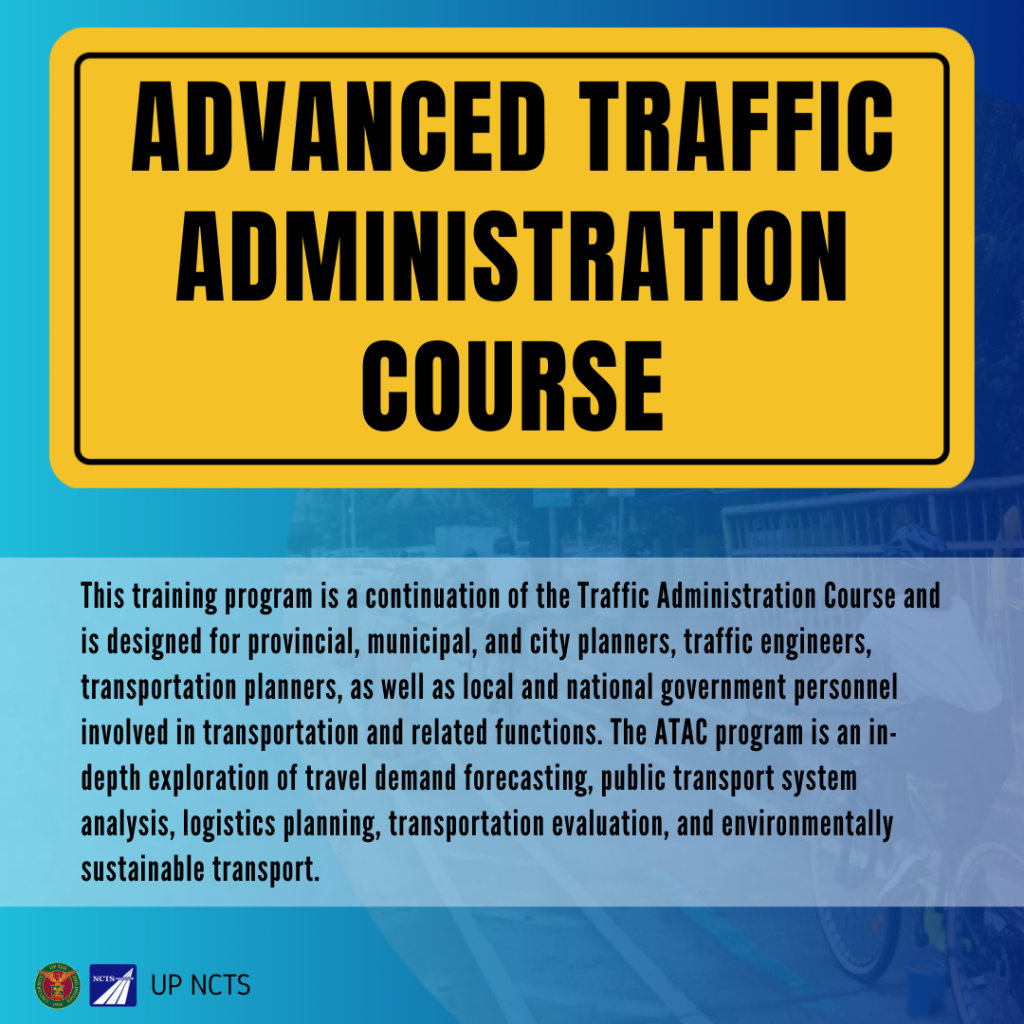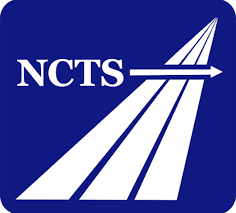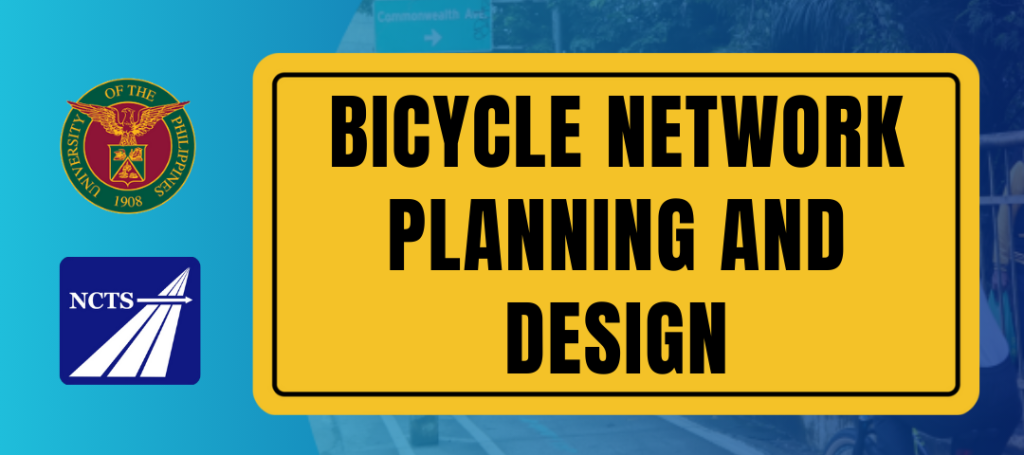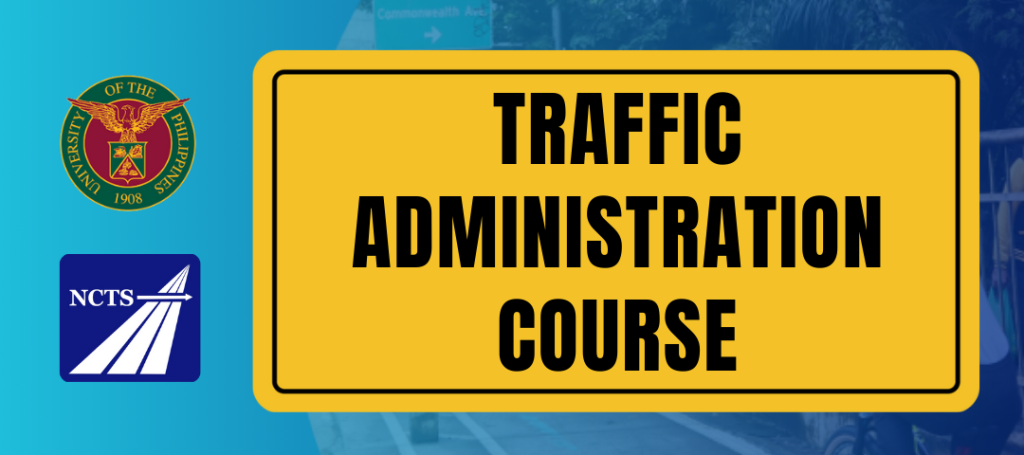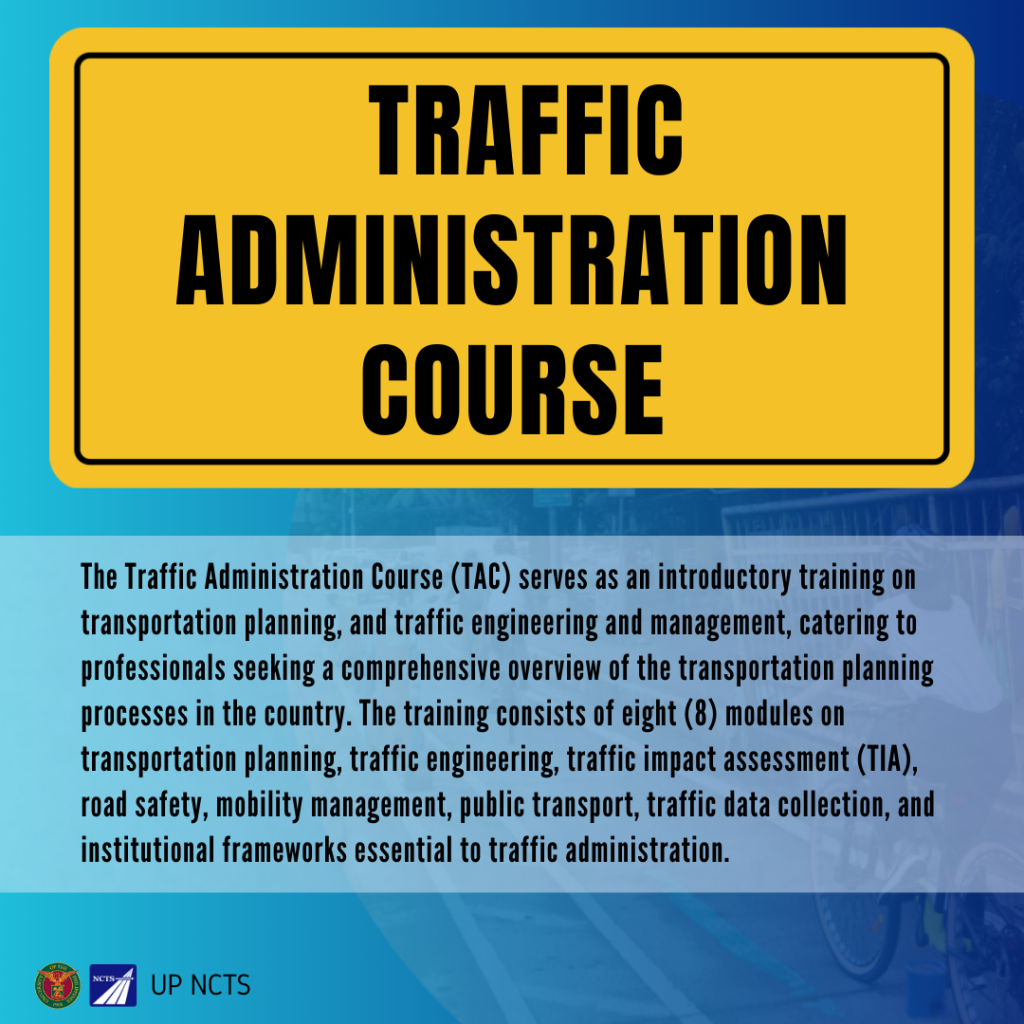
Objectives
- Become familiar with transportation and traffic issues relevant to local traffic context.
- Enhance knowledge and skills in planning, management, and administration of transportation programs.
- Establish professional and friendly relationships among experts and other participants.
Objectives
- Understand the role of a traffic enforcer.
- Identify the different laws and regulations.
- Identify different traffic signs and pavement markings.
- Be familiar with the procedures on how to direct and control traffic.
- Be familiar with significant legal requirements on the administration of traffic citation tickets.
- Learn how to investigate, record and report road traffic incidents.
- Understand the different institutional arrangements in traffic management.
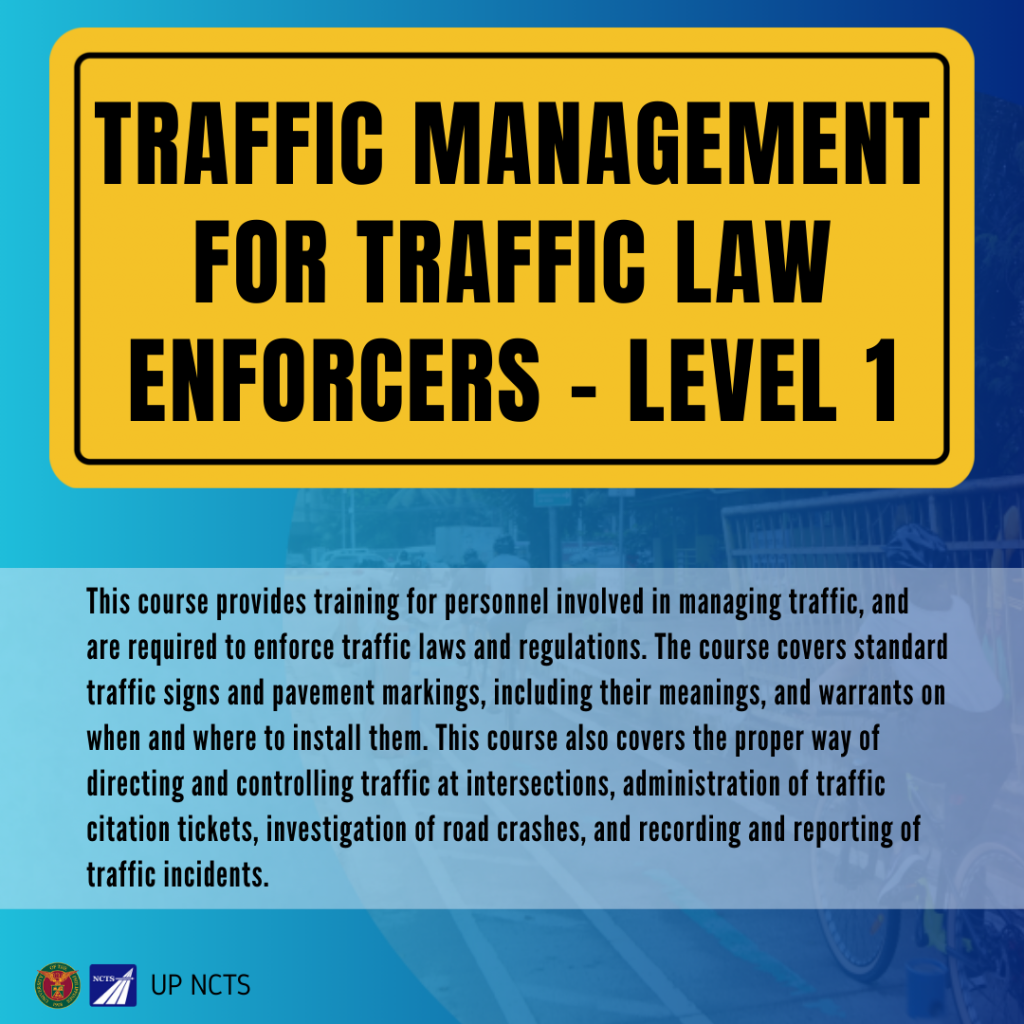
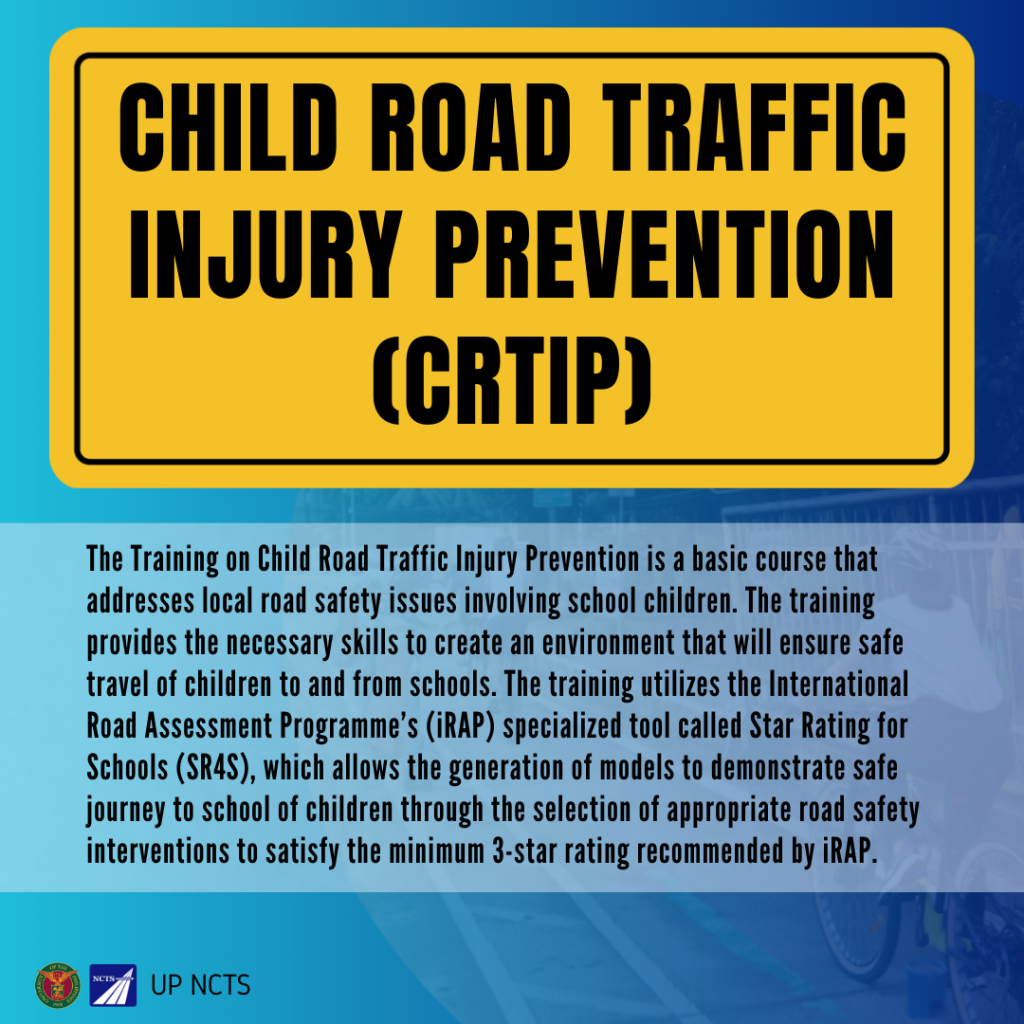
Objectives
- Formulate child road traffic injury prevention and safe school zone initiatives utilizing the SR4S tool.
- Apply the SR4S tool in conducting school star rating surveys, data processing, and analysis.
- Use an evidence-based tool for measuring, managing, and communicating the risks children are exposed to on their journeys to school.
- Explain the basic concepts of Child-Responsive Urban Planning
Objectives
- Appreciate the importance of Traffic Impact Assessment.
- Understand the principles and steps in conducting a TIA.
- Apply the TIA Report checklist in evaluating traffic impact assessment reports.
- Learn how to conduct TIA analysis using LocalSim.
- Assess the suitability of recommended measures to mitigate traffic impacts.
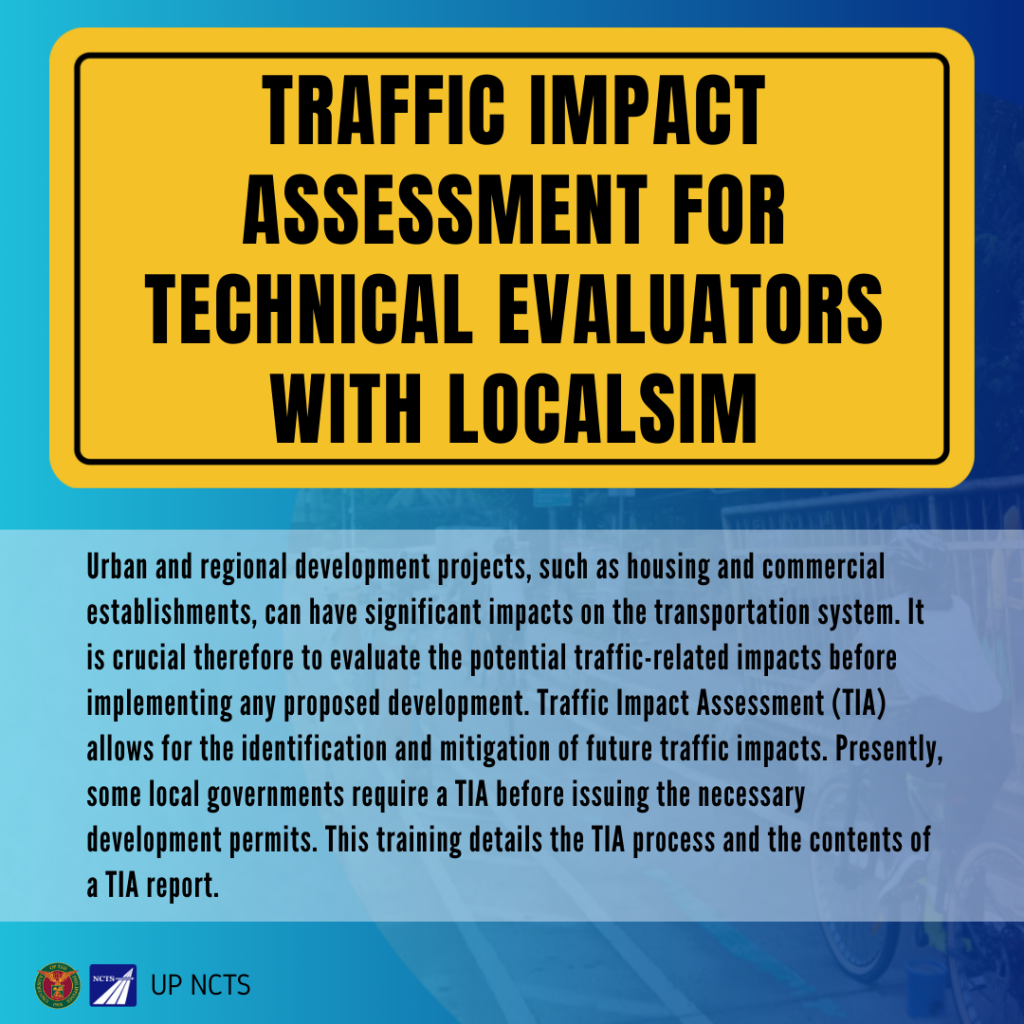
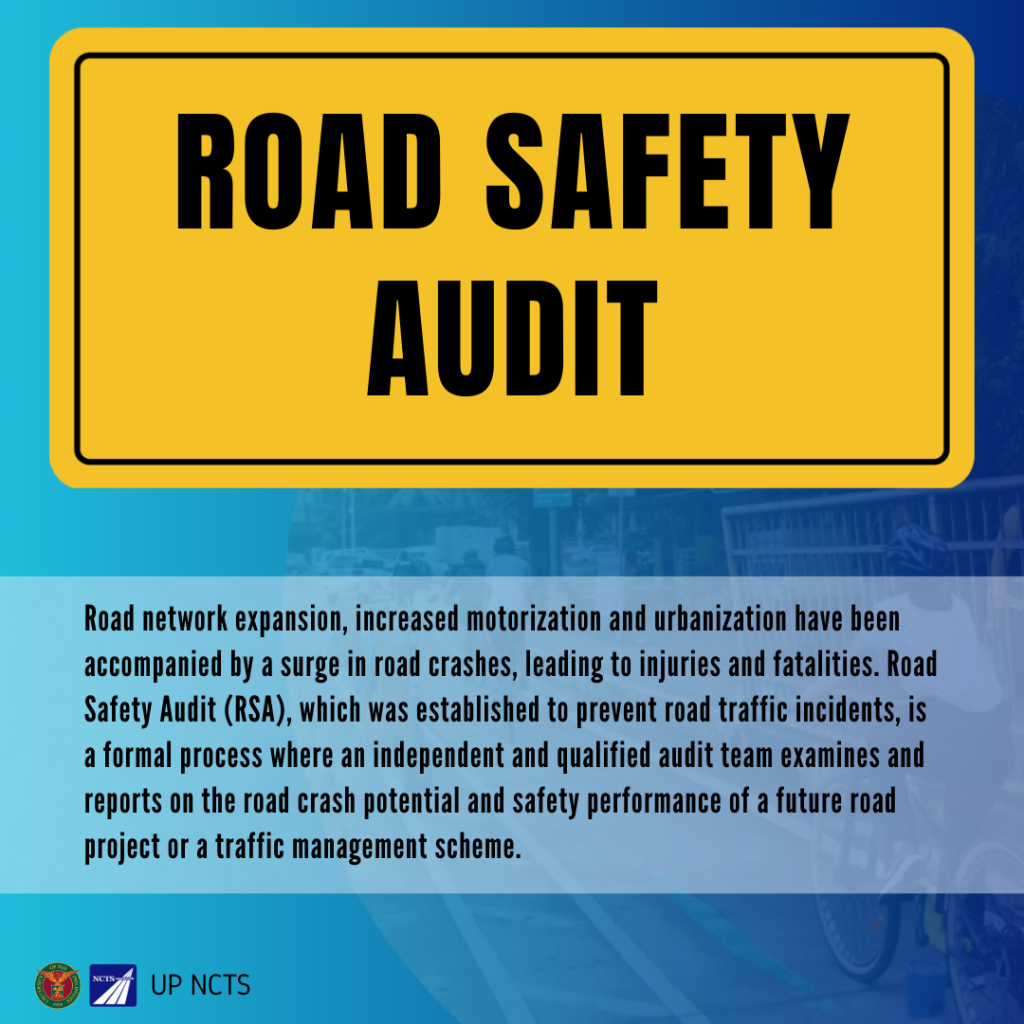
Objectives
- Become familiar with road safety issues relevant to local traffic context.
- Enhance knowledge and skills in improving road safety.
- Establish professional and friendly relationships among experts and other
participants.
Objectives
- Identify opportunities, issues, and challenges in developing the bicycle network of the city/municipality.
- Identify applicable laws and regulations on active transportation in their locality.
- Design the bicycle network of their locality, ensuring safety, efficiency, and inclusivity.
- Prepare the necessary signs, pavement markings, and other facilities needed for safe and inclusive cycling network.
- Prepare social marketing plan for the bicycle network developed, fostering community awareness and engagement.
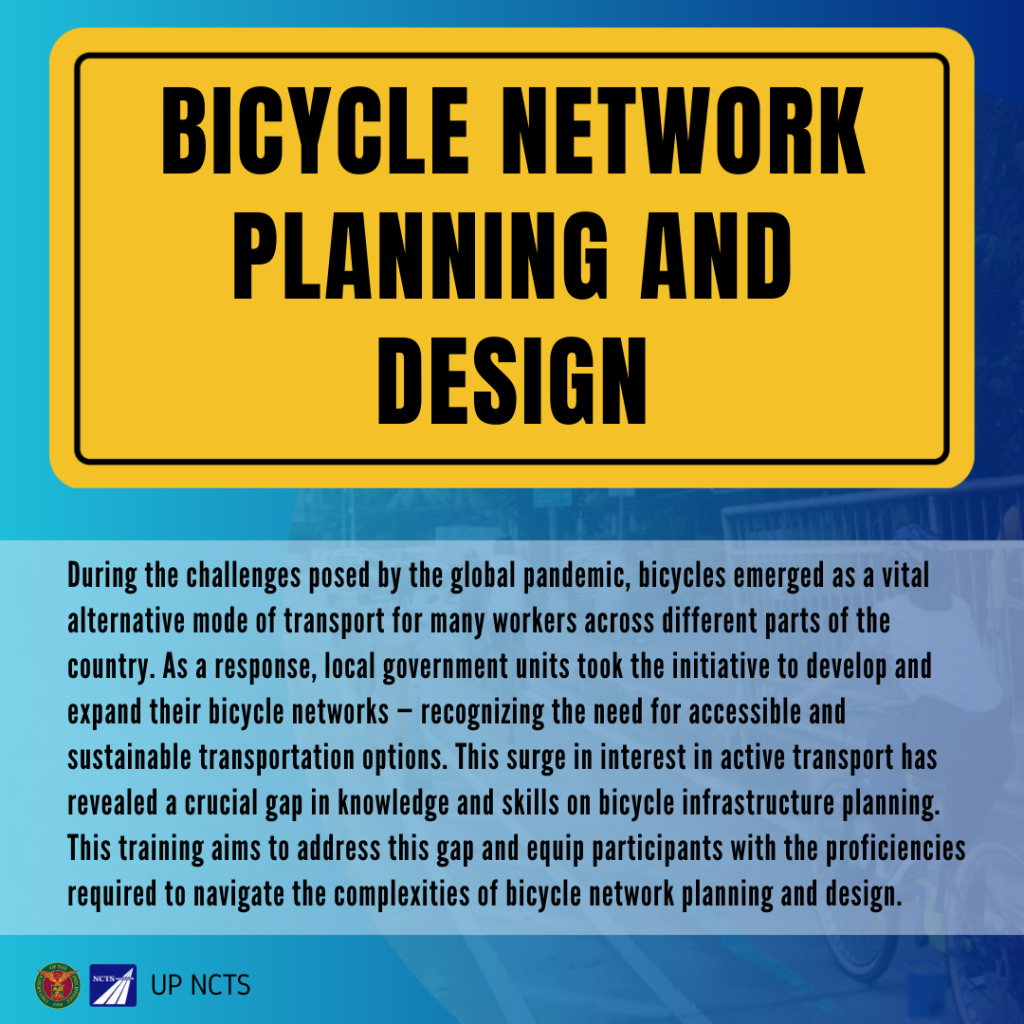
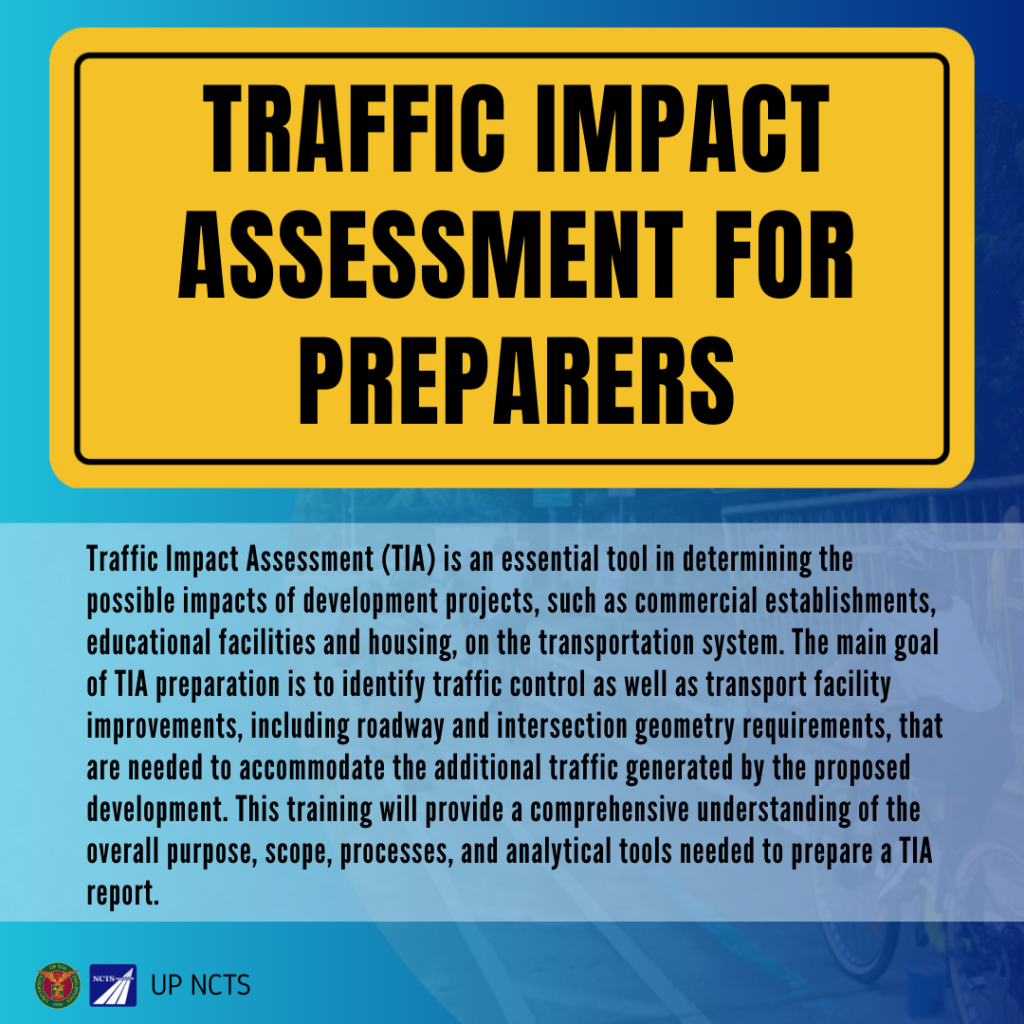
Objectives
- Understand scope & warrants of a TIA.
- Be familiar with the process and procedures of TIA preparation.
- Explain traffic engineering and transportation planning theories;
- Understand transportation assessment principles and procedures.
- Identify potential impacts of the proposed development.
- Evaluate base year and future traffic conditions of proposed development.
- Identify mitigation measures addressing adverse impacts of the development.
Objectives
- Discuss sustainable transportation planning, engineering and traffic administration.
- Identify sustainable transportation planning applications at the local level.
- Discuss the significance of outputs and results of travel demand forecasting
models in transportation planning.
